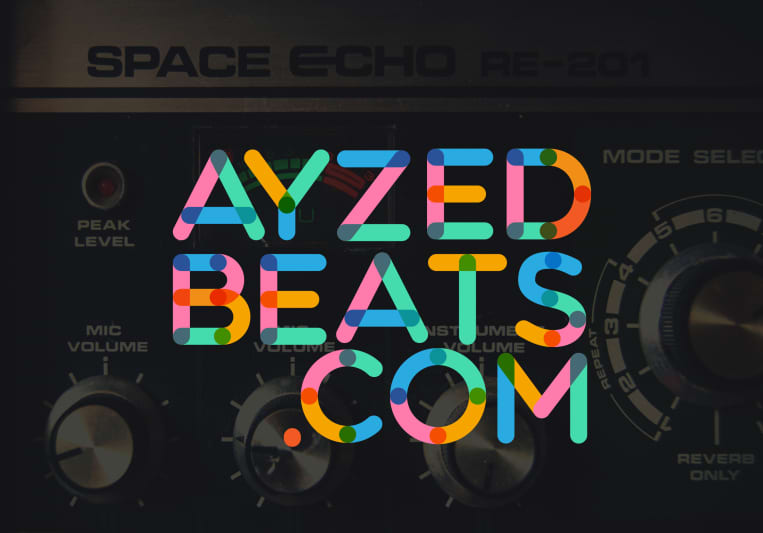
Specialising in live location recording, 'difficult' mixes & studio mixing, Ive worked with hundreds of artists including Mystery Jets, Gaz Coombes, The Charlatans, Ghost Poet & Ghetts through to contemporary Jazz acts such as Theo Croker & Beth Stevens. Utilising a hybrid studio centred around a pristine Neve console & PMC monitoring.
Trained at The Birmingham Conservatoire with a MMus Masters degree in Music Production
'Plays' & individual streams in excess of 2 Million for my mixes via Spotify, Deezer & Youtube.
Send me a note through the contact button above.
Interview with AyzedBeats
Q: Tell us about your studio setup.
A: In my mix room, I use a hybrid set up based around my Rupert Neve designed RND 5060 console, fed by Antelope Orion32 convertors & captured with the Burl AD between Logic X for a pristine mix, monitored by a pair of PMC two two.6 speakers. I have a selection of analog FX including Lexicon reverbs, Roland Space Echo's and various hacked tape machines & gadgets for added mojo too, with various plug-ins & software including the whole Slate Digital collection, Waves bundle & more for in the box mixing before outboard processing. More importantly than the mix set up is the microphone collection; where I have the following: DPA D'factos & Audix OM7's for live vocals, Numann U47fet, Blue Dragonfly, M-Audio Sputnik & Blue Bottles for studio applications. A full set of 10 DPA 4099's for drums, brass & strings, more Blue Dragonfly's of OH, Guitar Cabs and Royer R122 & Woodpecker ribbon mics for Cabs, Brass, ect. I also have a pair of DPA 4011A's for perfect room recordings of Orchestras, Choirs & Jazz set ups as well as everything in between.
Q: What do you bring to a song?
A: Whether it be recording a band in the studio or stage, I'm always looking for that last 5% that makes the record. My spare time has me poring over microphone specs for that crucial edge in clarity, new techniques or just listening to everything & everything for inspiration. I know how to work fast, so the technical aspect of recording becomes transparent to allow the music to be the focus. I bring idea's if appropriate (and wanted) or I can be the tape operator and be as unobtrusive as possible. Each session requires something unique, but every session requires passion, dedication & a love of music to make it count.
Q: What other musicians or music production professionals inspire you?
A: I always aspire for more of myself, and look to everyone professional musician around me for inspiration. Communication is key; and often just chatting to the guy setting up their instrument brings out the best in everyone. Knowing your equipment is one thing, but knowing the people you're working with is everything.
Q: Describe the most common type of work you do for your clients.
A: I split my time fairly equally between location 'live' recording of bands & musicians for broadcast content production & mixing material for albums/singles ect. By working in the 'live' arena as a recording engineer, I've learnt quickly how to not only work quickly with intuition, but how to craft a mix from the microphone onwards with great care & sensitivity. On a broadcast set, there is little time for experimentation, and excellence is demanded within an instant; a skill I have developed into a winning formula; repeatable every time. This skill is also completely applicable in the studio; if a song has been tracked properly, with every care taken to make the instrumentation sympathetic to the arrangement, a mix will build it's self. Making the musician feel comfortable, stress free and understood makes the process a breeze, and brings out the best in the performance & ultimately the final mix & master.
Q: Can you share one music production tip?
A: Fix it in the microphone. Whenever you're setting up for a recording, always pay attention to what you want the mic to hear. If it's not as close as possible to what you're ear wants to hear the that's not the right mic/position ect. By using a mic with the correct pick up pattern/frequency response and knowledge of how it will sit in the final production, you can save hours of disappointing recordings, lifeless mixes & unhappy musicians!
- Mixing EngineerAverage price - $400 per song
- Recording StudioAverage price - $400 per day
- Live SoundAverage price - $400 per concert
- Mastering EngineerAverage price - $100 per song
- Post EditingAverage price - $200 per track
- Live drum trackContact for pricing
- Neve 5060
- PMC twotwo.6
- Roland RE-201
- DPA Mics
- Neumann Mics
- Blue Mics
- Orion32
- MP32
- Burl Mothership



